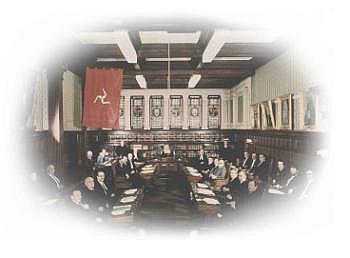Key Facts
The Branches of Tynwald
The High Court of Tynwald is historically comprised of three powers sitting as one body: The Lord of Mann (the sovereign or their representative, the Lieutenant Governor), the Legislative Council and the House of Keys.
The Legislative Council
The Legislative Council endorses legislation promoted by the Keys. The Council originally comprised the Lord’s officers and officials; the principal civil, military and ecclesiastical administrators of the Island. The majority of the Council are now elected by the House of Keys.
The House of Keys
The main function of the House of Keys is the consideration of Bills (draft legislation) before they are made Law by Act of Tynwald.
The role of the House of Keys has always been to represent the people of the Isle of Man in dealing with the Lord of Mann and his Council. The Keys became a publicly elected body in 1866.
|
Key Dates |
|
|

